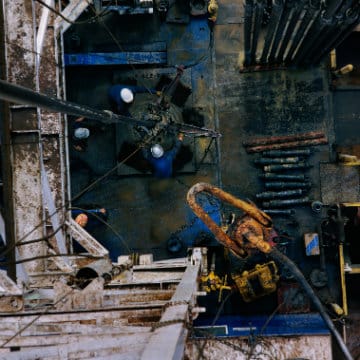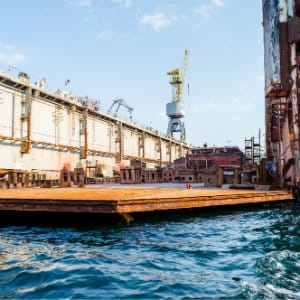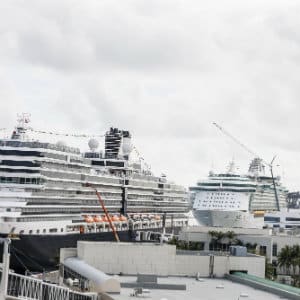If you’ve recently been injured while working as a maritime or offshore worker, you may have several questions about what comes next:
For answers to your work injury concerns, consider speaking with an experienced maritime injury lawyer in a free consultation.
After suffering an injury as a maritime worker, it’s normal to have questions about what to expect next. A serious work injury can lead to a variety of financial setbacks and may disrupt your life outside of work as well. It’s important for all maritime workers to be aware of their legal rights after an injury. However, the complex nature of maritime law often makes it difficult to determine what these rights are.
We’ve helped countless maritime workers explore their legal options and understand their rights after suffering an injury on the job. Over the years, we’ve come to understand the most common concerns these workers have.
Your options for financial compensation after a maritime work injury depend on a number of circumstances, including; the nature of your work, who your employer is, and how and where your injury occurred.
In Jones Act claims that involve employer or vessel owner liability, it’s often necessary to have the details of your incident reviewed by an experienced offshore accident attorney to determine how negligence may have contributed to your accident. If any form of negligence, no matter how small, played a role in your accident, you’ll likely have a strong case under the Jones Act. However, determining who was negligent and providing proof often requires the guidance of a lawyer who specializes in maritime law.
For claims made under the Longshore and Harbor Workers’ Compensation Act, you also may need legal counsel who can help you get through a complicated claims process. While workers under this Act are supposed to be covered for any work-related injury or illness, many injured longshore and harbor workers face resistance from their employers and insurance companies who have a financial interest in denying claims.

We’ve compiled a list of some of the most common concerns maritime workers after suffering a work-related injury or illness. Our answers can help you better understand what to expect after your injury, but it’s important to remember that each maritime injury case is unique. In order to fully understand your rights, it’s often necessary to discuss the circumstances of your injury with a qualified maritime lawyer.
When seeking financial compensation for an injury, maritime workers generally fall into one of two categories: those which are legally considered “seamen” under the Jones Act, and all other workers, who are covered under the Longshore and Harbor Workers’ Compensation Act (FHWCA).
Your classification is based on the nature of your work duties, and heavily depends on how much time you spend working on navigable waters. Each category offers different forms of financial compensation.
The FHWCA is similar to other workers’ comp claims, which operate as no-fault forms of insurance. This means that you’re covered regardless of how the injury occurred, and are prohibited from suing your employer. Jones Act claims, on the other hand, are based on holding employers liable when their negligence contributes to an employee injury.
Workers who meet the legal definition of “seaman” are covered under the Jones Act. Generally speaking, a seaman is a worker who spends more than 30% of their work hours in the service of a vessel. Determining your status as a seaman can get complicated, especially if you spend a portion of your work hours on land at docks or harbors. A lawyer who specializes in maritime law can help you better determine your classification.
Jones Act damages are similar to what you’d recover in a personal injury claim for a non-work injury. Any economic or noneconomic damage related to your injury is compensable under the Jones Act, including:
In fatal work injuries, the surviving spouses and children of the victim may be eligible to recover death benefits to account for the financial loss caused by their loved one’s passing.
Dock and harbor workers who are not covered under the Jones Act are eligible to recover compensation under the Longshore and Harbor Workers’ Compensation Act. These claims provide compensation similar to the state-level workers’ compensation claims most workers file after an injury. However, these claims are made at the federal level, which makes them more complicated than an average workers’ compensation claim.
Under the LHWCA, qualifying employees are eligible to recover compensation for the following damages:
If someone else’s negligence contributed to your injury in any way, your employer can be held liable under the Jones Act. This covers both co-worker and direct employer negligence. Any failure to maintain a safe work environment on the ship constitutes negligence.
Yes – if the vessel is determined to be unseaworthy. An unseaworthy vessel is one which has some defect, maintenance issue, or other safety concern. Vessels which are capable of sailing can still be considered unseaworthy. For example, if you were injured because of a lack of safety guard rails on board, you could potentially hold the ship owner liable in a Jones Act claim under the principle of unseaworthiness.
Yes. If your family has lost a loved one in a fatal maritime work accident, you can recover financial compensation for expenses related to your loved one’s death. While the emotional turmoil is the harshest consequence of a fatal work injury, the financial ramifications also cause some families great difficulty.
Depending on the circumstances behind your loved one’s death, you may be eligible for one or more forms of compensation under maritime law:
If you’ve recently been injured while working in a maritime setting, there are a few first steps to take:
If you work as a seaman, crew member, or captain of a vessel on navigable waters, you would likely be looking to file a Jones Act claim. In order to file a claim, you must establish that the negligence of the vessel owner, your employer, or fellow crew members contributed to your injury.
If you’re a maritime worker who primarily workers on-shore (such as at a dock, port, or harbor), you are likely covered by the Longshore and Harbor Workers’ Compensation Act (LHWCA). Virtually all maritime workers who do not qualify for the Jones Act have the option to file a LHWCA claim.
Oil rig workers have the same rights as other maritime workers after an injury. Like these other workers, the type of claim you file depends largely on your work setting.
If you work on a rig which is floating offshore, you would likely meet the definition of a “seaman” and be eligible to file a claim under the Jones Act. This type of claim allows you to hold the vessel owner and/or your employer liable for any negligence which contributed to your injury.
If you work on a stationary oil rig, natural gas well, or in another primarily land-based position, you would likely be covered under your state’s workers’ compensation program.
In any work-related injury, seamen are legally entitled to maintenance and cure benefits from their employer. Unlike a Jones Act claim, negligence is not considered for maintenance and cure. Regardless of how your injury occurred, you’re entitled to these benefits – as long as it’s work-related.
Maintenance covers your necessary daily living expenses, including rent or mortgage, utility bills, groceries, etc. Certain expenses that are classified as unnecessary are not included, such as cable and telephone bills.
Cure covers medical expenses related to your injury, including transportation costs for trips to doctor’s appointments.
While you’re entitled to maintenance and cure benefits after any work-related injury, some unethical employers may attempt to deny these benefits. They may argue that your injury occurred outside of work or find other reasons to refuse payment. If you’re in this situation, it’s important to know that the law is on your side. A lawyer who specializes in maritime law can help you stand up for you rights and get the financial assistance you need after an injury.
Injured seamen have up to three years after the date of their accident to file a Jones Act claim. However, you should try to file your claim much sooner. Claims which are filed shortly after the injury are more likely to be successful.
Workers covered under the LHWCA must report the injury to their employers within 30 days after the accident. A formal claim must be filed at a District Office within one year from the date of the injury.
Maritime workers of all types regularly work in hazardous and physically strenuous conditions where the risk of injury is high. At the very least, you should be entitled to financial assistance for your medical bills and lost wages.
Regardless of whether you’re covered under the Jones Act or the LHWCA, any work-related injury or illness is eligible for financial compensation. This includes accidental injuries, occupational illness, repetitive motion injuries, or preexisting conditions which were aggravated by work conditions.
However, determining which type of compensation you qualify for can be complicated, and some injury claims may involve multiple forms of compensation – such as a Jones Act claim combined with an unseaworthy vessel claim. Some injured maritime workers also struggle to receive their benefits when insurance companies and employers dispute the nature of their injuries.
Yes – you’re permitted to seek medical treatment from any doctor you choose. It’s usually wise to opt for your own doctor instead of a company doctor. Company doctors are more likely to look out for your employer’s interests and may not provide the full care you need after a work injury. Additionally, a company doctor may be more likely to clear you to return to work before you’re ready.
No – and you absolutely should not give one. Your employer may pressure you into giving a recorded statement, but they’re only looking to protect themselves from liability. Refusing to give a statement will not hurt your case, but saying the wrong in a recorded statement could affect your ability to recover financial compensation.
Cruise ship employees are covered under the Jones Act and have the same rights a other seamen after an injury. This includes all types of cruise ship workers, including crew members, food service workers, kitchen employees, housekeepers, etc.
When filing a claim after a maritime work injury (either through the Jones Act or LHWCA), it’s important to remember that your employer and their insurance company both have a financial interest in denying claims. The insurance company will have their own lawyers who guide them through the process and specialize in denying claims. The business model of the insurance industry relies on limiting payouts as much as possible.
In order to give yourself the best chance at receiving compensation, it’s only fair to have your own lawyer who has a detailed understanding of maritime law. The right lawyer can be a difference maker and is often necessary in order to deal with powerful maritime employers and insurance carriers.
Further Reading: Offshore & Maritime Work Injury TV Commercial: Seeking Financial Compensation


 info@legalherald.com
info@legalherald.com